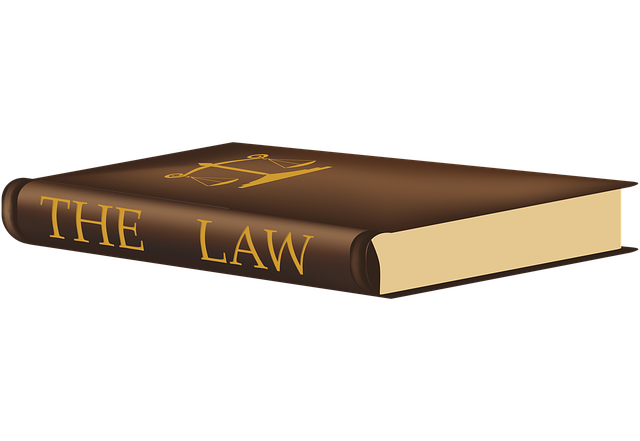The Right to a Fair Trial, as protected by the Constitution, is crucial in antitrust violation cases, ensuring defendants receive a transparent and equitable legal process. Skilled attorneys defend against allegations, challenging evidence and promoting fair competition while upholding free market principles and individual rights. Historic case studies like U.S. v. General Electric Co. and Microsoft v. U.S. have shaped our understanding of antitrust law and the importance of fair trials in fostering competitive markets.
Antitrust violation cases are pivotal moments in ensuring market competitiveness and consumer protection. This article delves into the intricate world of antitrust law, focusing on the balance between upholding fair trial rights and prosecuting anti-competitive practices. We explore historical case studies that have shaped modern interpretations, highlighting the constitutional right to a fair trial as a cornerstone in these legal battles. Understanding these dynamics is essential for navigating complex economic landscapes and preserving market integrity.
- Understanding Antitrust Violation Cases
- The Role of Fair Trial Rights in Antitrust Law
- Historical Perspective: Key Case Studies and Lessons Learned
Understanding Antitrust Violation Cases
Antitrust violation cases are complex legal battles that revolve around ensuring fair competition in the marketplace. These cases aim to protect consumers by preventing businesses from engaging in practices that restrict trade, such as price-fixing or monopolistic behavior. Understanding these cases is crucial, especially because they often involve delicate balancing acts between promoting free market principles and safeguarding individual rights.
The right to a fair trial under the Constitution is a cornerstone in antitrust litigation. Defendants in such cases have the same legal protections as in any other criminal proceeding, ensuring that accusations are proven beyond a reasonable doubt. A winning challenging defense verdict can be achieved through meticulous legal strategies that scrutinize evidence, challenge allegations, and highlight the competitive benefits of alleged anticompetitive behavior. Throughout all stages of the investigative and enforcement process, from initial inquiries to trials, white-collar defense attorneys play a vital role in protecting clients’ interests while navigating the intricate web of antitrust laws.
The Role of Fair Trial Rights in Antitrust Law
In the realm of antitrust law, ensuring a fair trial remains paramount to maintaining a just and competitive market environment. The Right to a Fair Trial, enshrined in the Constitution, plays a pivotal role in balancing the government’s enforcement powers with individual rights. This constitutional safeguard is crucial across the country, protecting businesses and individuals accused of antitrust violations from arbitrary or biased proceedings. It ensures that all parties involved have the opportunity to present their case, challenge evidence, and be represented by competent legal counsel throughout general criminal defense strategies.
During all stages of the investigative and enforcement process, fair trial rights become especially critical. These include the right to due process, access to relevant information, and protection from self-incrimination. By upholding these principles, the legal system fosters transparency and accountability while safeguarding against potential abuses of power. This balance is essential for instilling public trust in antitrust enforcement actions and ensuring that businesses are treated fairly within the regulatory framework.
Historical Perspective: Key Case Studies and Lessons Learned
The history of antitrust law is filled with pivotal case studies that have shaped our understanding of fair competition and the consumer’s right to a level playing field. One of the earliest and most influential cases was U.S. v. General Electric Co. (1964), where the Supreme Court dismantled a complex web of intercorporate agreements, demonstrating the Court’s commitment to maintaining a robust antitrust regime. This case study underscores the importance of transparency in business dealings and serves as a warning against anti-competitive practices that stifle innovation and raise consumer prices.
Over time, high-stakes cases have continued to refine our approach to antitrust violations. Microsoft v. U.S. (1998) is a notable example, leading to the company’s historic settlement and structural divestment. This landmark decision not only achieved extraordinary results in terms of monetary penalties but also reshaped how we address monopolistic behavior, ensuring that corporations respect the constitutional right to a fair trial and maintain competitive markets. Key lessons from these historical perspectives remain relevant today, guiding legal strategies and fostering an environment where winning challenging defense verdicts is grounded in principle, not just precedent.
Antitrust violation cases, as demonstrated through historical case studies, underscore the intricate balance between fostering market competition and ensuring fair trial rights. While the pursuit of robust economic competition is vital for a healthy marketplace, it must be achieved without compromising the fundamental right to a fair trial guaranteed by the Constitution. Learning from past legal battles has shaped modern antitrust law, reinforcing the importance of due process and the impartial application of regulations. Going forward, navigating these complexities demands a careful consideration of both competitive imperatives and the Right to a Fair Trial in the Constitution.






